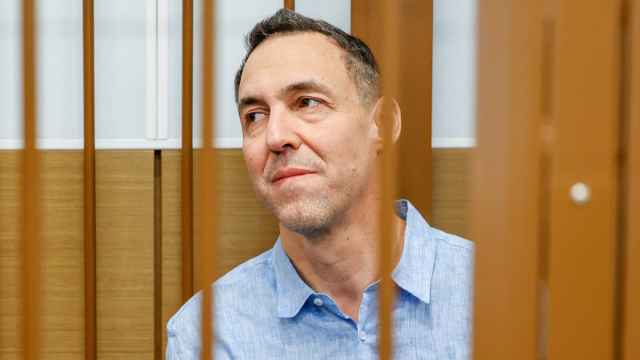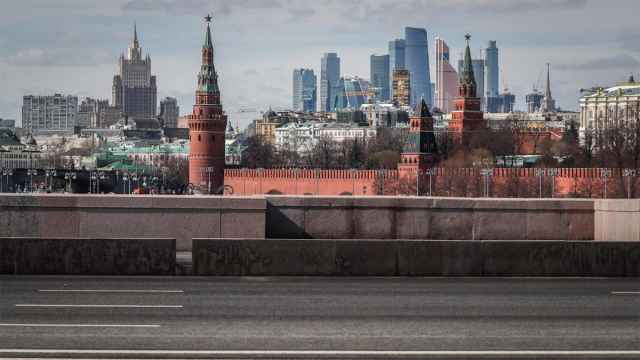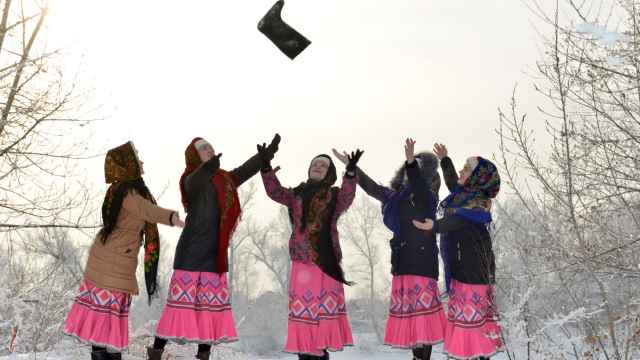The MT Conferences section did not involve the reporting or the editorial staff of The Moscow Times.

Etienne Strijp
CEO
Heineken Russia
Over the last decade, sustainability has become an important part of the corporate agenda. Discussions concerning the license to operate and access to increasingly scarce resources are now commonplace. Executive teams have come to appreciate not only the commercial and financial benefits of a sustainable operation, but also that government, investor, customer and employee expectations mean that addressing social and environmental issues is critical to future success.
However, when "profit" and "growth" remain key boardroom priorities it can be a challenge to demonstrate that growth and sustainability are partners rather than competitors. Commitment from senior leaders, clear goals and plans, incentives, investment all help; but without the buy-in of employees, none of these things alone will make the difference.
HEINEKEN began publishing statistics about its sustainability efforts in 2000. In 2010, after a series of discussions with our stakeholders, we introduced a new holistic approach to sustainability called "Brewing a Better Future" that aims to improve our environmental, community and societal sustainability.
Globally, we have four sustainability focus areas: protecting water resources, reducing CO2 emissions, sourcing sustainably and advocating responsible consumption. For each focus area we have set commitments and objectives to be tracked both on a quarterly and annual basis.
Within HEINEKEN, every market has its own three-year plan for sustainability and its own sustainability committee to co-ordinate the topic at the management level. Due to the scale of business in Russia, we have a sustainability working group to support the committee. Operating companies are responsible for establishing a regular dialogue with key local stakeholders, and this plays a big part in the success of any sustainability program. By communicating with key stakeholders, companies can ensure that our local actions remain rooted in reality and address local need.
Progress relies ultimately on people. Without them, nothing happens. Engaging, motivating and supporting them is therefore essential.
For example, in Russia we have established three long-term partnerships uniting efforts of governmental authorities, NGOs and HEINEKEN as business. These partnerships are implemented in six Russian regions and are addressing, from the point of view of our internal and external stakeholders, two of the most crucial local issues: responsible consumption and environment.
In terms of responsible consumption, we address parents and teachers to help them find the right way to talk to teenagers on difficult topics, primarily on the consequences of underage drinking. In such issues the tone of voice matters significantly, so the professional psychologists chosen to implement the program have preferred an interactive approach to a traditional mentoring one. Such an approach aims to shape a responsible active life position allowing teenagers to make the right choice and say "no" even if their environment provokes the contrary. So far, the program has covered more than 4,000 participants.
We also have a special psychological training for retailers that has become an integral part of corporate training and development agenda in retail chains in Kaliningrad, Novosibirsk and Yekaterinburg. The training helps sales staff apply adequate psychological tools to address negative situations when refusing the underage in buying alcohol. It also increases awareness of legislation regulating alcohol sales among retailers.
And the second sustainability focus in Russia is dedicated to eco coaching and eco culture development in Baikal region. The initial problem there concerned garbage left by tourists and local citizens. In 2008 HEINEKEN was the first company to offer a tool for the local authorities to help address this issue. And since then, our volunteers have removed more than 60,000 cubic meters of garbage to clean more than 40 kilometers of the shoreline.
All the above-mentioned is good, but the key to success is credibility. To achieve real engagement, we start with our employees. It is important that employees view our commitment to sustainability as credible, as we have often found employees to be the stakeholders most dismissive of "corporate speak." We have tried to increase credibility in two ways: Firstly we have made sustainability one of our six key business priorities, giving it visibility and endorsing the idea that the work our people do around sustainability is a key driver of HEINEKEN's growth. This move has been CEO-led, another important component in the mix. Secondly, on the basis that "what gets measured gets managed," we have introduced Green Gauge, a measurement system that records progress on all of our key commitments and indicators. This means that, for the first time, we can now report on progress quarterly on a local, regional and global level.
If we believe that credibility is important for employee engagement, then reporting progress to all internal and external stakeholders is a necessary next step. In Russia, HEINEKEN has been pioneering in sustainability reporting among the beer industry since 2009. We have found that these reports increase our public accountability and demonstrate our commitment to transparency. Additionally, it creates a strong platform for local stakeholder dialogue.
Progress relies ultimately on people. Without them, nothing happens. Engaging, motivating and supporting them on the sustainability journey is therefore essential and something in which we invest a lot of time, energy and resource.
The MT Conferences section did not involve the reporting or the editorial staff of The Moscow Times.
A Message from The Moscow Times:
Dear readers,
We are facing unprecedented challenges. Russia's Prosecutor General's Office has designated The Moscow Times as an "undesirable" organization, criminalizing our work and putting our staff at risk of prosecution. This follows our earlier unjust labeling as a "foreign agent."
These actions are direct attempts to silence independent journalism in Russia. The authorities claim our work "discredits the decisions of the Russian leadership." We see things differently: we strive to provide accurate, unbiased reporting on Russia.
We, the journalists of The Moscow Times, refuse to be silenced. But to continue our work, we need your help.
Your support, no matter how small, makes a world of difference. If you can, please support us monthly starting from just $2. It's quick to set up, and every contribution makes a significant impact.
By supporting The Moscow Times, you're defending open, independent journalism in the face of repression. Thank you for standing with us.
Remind me later.





